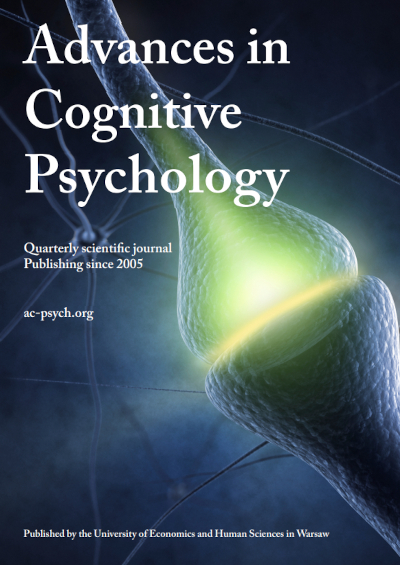Archive of all online content
-
Volume 22 Issue 1
pp. 1-41
()
-
Volume 21 Issue 4
pp. 309-500
(16 November 2025) -
Volume 21 Issue 3
pp. 212-308
(2 September 2025) -
Volume 21 Issue 2
pp. 120-211
(25 May 2025) -
Volume 21 Issue 1
pp. 1-93
(11 March 2025)
-
Volume 20 Issue 4
pp. 237-388
(20 November 2024) -
Volume 20 Issue 3
pp. 158-236
(19 August 2024) -
Volume 20 Issue 2
pp. 80-157
(24 June 2024) -
Volume 20 Issue 1
pp. 1-79
(1 March 2024)
-
Volume 19 Issue 4
pp. 1-105
(27 December 2023) -
Volume 19 Issue 3
pp. 211-333
(25 July 2023) -
Volume 19 Issue 2
pp. 111-200
(30 June 2023) -
Volume 19 Issue 1
pp. 1-110
(31 March 2023)
-
Volume 18 Issue 4
pp. 243-303
(31 December 2022) -
Volume 18 Issue 3
pp. 165-202
(30 September 2022) -
Volume 18 Issue 2
pp. 85-164
(30 June 2022) -
Volume 18 Issue 1
pp. 1-84
(31 March 2022)
-
Volume 17 Issue 4
pp. 250-291
(31 December 2021) -
Volume 17 Issue 3
pp. 193-249
(30 September 2021) -
Volume 17 Issue 2
pp. 99-192
(30 June 2021) -
Volume 17 Issue 1
pp. 1-98
(31 March 2021)
-
Volume 16 Issue 4
pp. 291-369
(31 December 2020) -
Volume 16 Issue 3
pp. 176-290
(30 September 2020) -
Volume 16 Issue 2
pp. 85-175
(30 June 2020) -
Volume 16 Issue 1
pp. 1-84
(31 March 2020)
-
Volume 15 Issue 4
pp. 236-317
(31 December 2019) -
Volume 15 Issue 3
pp. 169-235
(30 September 2019) -
Volume 15 Issue 2
pp. 75-168
(30 June 2019) -
Volume 15 Issue 1
pp. 1-74
(31 March 2019)
-
Volume 14 Issue 4
pp. 150-208
(31 December 2018) -
Volume 14 Issue 3
pp. 62-150
(30 September 2018) -
Volume 14 Issue 2
pp. 38-61
(30 June 2018) -
Volume 14 Issue 1
pp. 1-37
(31 March 2018)
-
Volume 13 Issue 4
pp. 267-322
(31 December 2017) -
Volume 13 Issue 3
pp. 190-266
(30 September 2017) -
Volume 13 Issue 2
pp. 121-189
(30 June 2017) -
Volume 13 Issue 1
pp. 1-120
(31 March 2017)
-
Volume 12 Issue 4 (special issue)
pp. 150-235
(31 December 2016) -
Volume 12 Issue 3
pp. 130-149
(30 September 2016) -
Volume 12 Issue 2
pp. 67-129
(30 June 2016) -
Volume 12 Issue 1
pp. 1-66
(31 March 2016)
-
Volume 11 Issue 4
pp. 118-135
(31 December 2015) -
Volume 11 Issue 3
pp. 64-117
(30 September 2015) -
Volume 11 Issue 2
pp. 31-63
(30 June 2015) -
Volume 11 Issue 1
pp. 1-30
(31 March 2015)
-
Volume 10 Issue 4
pp. 119-155
(31 December 2014) -
Volume 10 Issue 3
pp. 81-118
(30 September 2014) -
Volume 10 Issue 2
pp. 32-80
(30 June 2014) -
Volume 10 Issue 1
pp. 1-31
(27 February 2014)
-
Volume 9 Issue 4
pp. 156-223
(31 December 2013) -
Volume 9 Issue 3
pp. 112-155
(24 October 2013) -
Volume 9 Issue 2
pp. 53-111
(30 June 2013) -
Volume 9 Issue 1
pp. 1-52
(31 March 2013)
-
Volume 8 Issue 4
pp. 267-295
(31 December 2012) -
Volume 8 Issue 3
pp. 210-266
(27 September 2012) -
Volume 8 Issue 2
pp. 70-209
(28 June 2012) -
Volume 8 Issue 1
pp. 1-69
(29 March 2012)
-
Volume 7 Issue 2
pp. 55-156
(31 December 2011) -
Volume 7 Issue 1
pp. 1-54
(31 March 2011)
-
Volume 6 Issue 6
pp. 1-141
(31 December 2010)
-
Volume 5 Issue 5
pp. 1-134
(31 December 2009)
-
Volume 4 Issue 1
pp. 1-14
(31 March 2008)
-
Volume 3 Issue 4
pp. 419-465
(31 December 2007) -
Volume 3 Issue 3
pp. 363-417
(30 September 2007) -
Volume 3 Issue 1
pp. 1-361
(31 March 2007)
-
Volume 2 Issue 4
pp. 239-276
(31 December 2006) -
Volume 2 Issue 2
pp. 99-237
(30 June 2006) -
Volume 2 Issue 1
pp. 1-97
(31 March 2006)
-
Volume 1 Issue 1
pp. 1-16
()
Volume 11 Issue 1 (2015)
Letter from the editors
Rob H. J. van der Lubbe, Ulrich Ansorge
-
Elucidating the Functional Relationship Between Working Memory Capacity and Psychometric Intelligence: A Fixed-Links Modeling Approach for Experimental Repeated-Measures Designs
Philipp Thomas, Thomas H. Rammsayer, Karl Schweizer, Stefan J. Troche

Stefan Troche, University of Witten/Herdecke, Department of Psychology and Psychotherapy, Alfred-HerrhausenStraße 44, 58455 Witten, Germany.
E-mail: stefan.troche@uni-wh.de
Numerous studies reported a strong link between working memory capacity (WMC) and fluid intelligence (Gf), although views differ in respect to how close these two constructs are related to each other. In the present study, we used a WMC task with five levels of task demands to assess the relationship between WMC and Gf by means of a new methodological approach referred to as fixed-links modeling. Fixed-links models belong to the family of confirmatory factor analysis (CFA) and are of particular interest for experimental, repeated-measures designs. With this technique, processes systematically varying across task conditions can be disentangled from processes unaffected by the experimental manipulation. Proceeding from the assumption that experimental manipulation in a WMC task leads to increasing demands on WMC, the processes systematically varying across task conditions can be assumed to be WMC-specific. Processes not varying across task conditions, on the other hand, are probably independent of WMC. Fixed-links models allow for representing these two kinds of processes by two independent latent variables. In contrast to traditional CFA where a common latent variable is derived from the different task conditions, fixed-links models facilitate a more precise or purified representation of the WMC-related processes of interest. By using fixed-links modeling to analyze data of 200 participants, we identified a non-experimental latent variable, representing processes that remained constant irrespective of the WMC task conditions, and an experimental latent variable which reflected processes that varied as a function of experimental manipulation. This latter variable represents the increasing demands on WMC and, hence, was considered a purified measure of WMC controlled for the constant processes. Fixed-links modeling showed that both the purified measure of WMC (β = .48) as well as the constant processes involved in the task (β = .45) were related to Gf. Taken together, these two latent variables explained the same portion of variance of Gf as a single latent variable obtained by traditional CFA (β = .65) indicating that traditional CFA causes an overestimation of the effective relationship between WMC and Gf. Thus, fixed-links modeling provides a feasible method for a more valid investigation of the functional relationship between specific constructs.
Keywords: working memory capacity, fluid intelligence, fixed-links modeling, confirmatory factor analysisThe Effect of Observers’ Mood on the Local Processing of Emotional Faces: Evidence from Short-Lived and Prolonged Mood States
Setareh Mokhtari, Heather Buttle

Heather Buttle, School of Psychology, Massey University, Private Bag 102-904, North Shore 0745, Auckland, New Zealand.
E-mail: h.buttle@massey.ac.nz
We examined the effect of induced mood, varying in valence and longevity, on local processing of emotional faces. It was found that negative facial expression conveyed by the global level of the face interferes with efficient processing of the local features. The results also showed that the duration of involvement with a mood influenced the local processing. We observed that attending to the local level of faces is not different in short-lived happy and sad mood states. However, as the mood state is experienced for a longer period, local processing was impaired in happy mood compared to sad mood. Taken together, we concluded that both facial expressions and affective states influence processing of the local parts of faces. Moreover, we suggest that mediating factors like the duration of involvement with the mood play a role in the interrelation between mood, attention, and perception.
Keywords: attention, emotion, face perception, global-local processing, prolonged vs. short-lived moodCounterfactual Reasoning for Regretted Situations Involving Controllable Versus Uncontrollable Events: The Modulating Role of Contingent Self-Esteem
Meredith R. Wilkinson, Linden J. Ball, David Alford

Linden J. Ball, School of Psychology University of Central Lancashire, Preston, PR1 2HE, UK.
E-mail: LBall@uclan.ac.uk
We report a study that examined the modulating impact of contingent self-esteem on regret intensity for regretted outcomes associated with controllable versus uncontrollable events. The Contingent Self-Esteem Scale (e.g., Kernis & Goldman, 2006) was used to assess the extent to which a person’s sense of self-worth is based on self and others’ expectations. We found that there was an influence of self-esteem contingency for controllable but not for uncontrollable regret types. For controllable regret types individuals with a high contingent (i.e., unstable) self-esteem reported greater regret intensity than those with a low contingent (i.e., stable) self-esteem. We interpret this finding as reflecting a functional and adaptive role of high contingent self-esteem in terms of mobilizing the application of counterfactual reasoning and planning mechanisms that can enable personal expectations to be achieved in the future.
Keywords: contingent self-esteem, regret, counterfactual reasoning, controllable events, uncontrollable events


